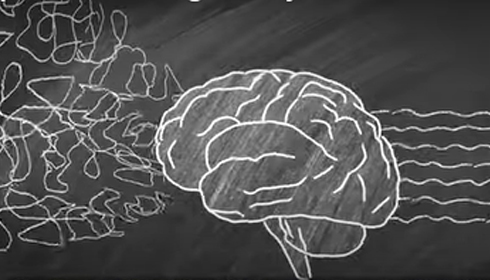
Scientists Discover Human Thought Process Limited to 10 Bits Per Second
A revolutionary study undertaken by Caltech researchers measures the speed of the human mind at 10 bits per second, in stark contrast to the billion bits per second processed by our sensory systems. This difference is emphasised in the most recent edition of Neurone, which calls into question long-held notions about the brain's capacity and the limits of neural interfaces.
"Every moment, we are extracting just 10 bits from the trillion that our senses are taking in and using those 10 to perceive the world around us and make decisions," said Markus Meister, the study's main researcher. "This raises a paradox: What is the brain doing to filter all of this information?"
The study, performed by graduate student Jieyu Zheng in Meister's group, looked at human behaviours, including reading, problem solving, and gaming, through the lens of information theory. Their calculations revealed an unexpected bottleneck: whereas sensory neurones send massive amounts of information, high-level cognition is limited to a painfully slow 10 bits per second.
This "speed limit" stands in stark contrast to sensory input rates, raising serious problems. With over 85 billion neurones, many of which are dedicated to cognition, how does the brain function at such a slow rate?
One hypothesis focuses on evolution. Early neural systems evolved primarily to aid in navigation, guiding species towards food and away from predators. Zheng and Meister believe that modern human brains retain this evolutionary trait, processing thought in a linear manner through abstract notions.
Zheng and Meister write, "We can see human thinking as a form of navigation through a space of abstract concepts."
This single-threaded processing may have provided survival benefits, as focusing on one key decision at a time was typically necessary.
The study's findings present substantial obstacles to the concept of brain-computer interfaces (BCIs). Proponents of BCIs, including technology leaders, anticipate technologies that allow humans to think and communicate at speeds much above present speech or written communication.
Meister warned that the brain could only communicate at a rate of 10 bits per second, even with direct neural interfaces. This basic limitation changes what people think future BCI capabilities will be able to do, limiting them to the brain's normal speed.
The dilemma of a slow mind persists: why do we have billions of neurones while cognitive processes are so slow? According to the study, the brain's architecture may contain this limitation, which favours concentrated thinking over parallel processing.
Future research aims to investigate how this bottleneck influences cognition and explore potential solutions.For the time being, Zheng and Meister emphasise that our predecessors adapted to slower-paced circumstances, making this "speed limit" sustainable for survival.
As neuroscience works to solve these mysteries, the study highlights the brain's surprising efficiency. Humans traverse an enormous sensory world with only 10 bits per second, showing the marvel of evolution as well as the ongoing mysteries of the brain.